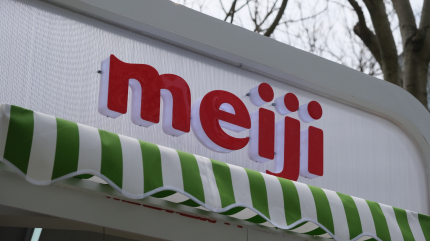
Meiji Holdings is set to close three yogurt factories in Japan and replace them with a new site.
The Japanese food group is to invest around Y40bn ($279m) in the construction of the plant.

Discover B2B Marketing That Performs
Combine business intelligence and editorial excellence to reach engaged professionals across 36 leading media platforms.
Building the new factory will allow Meiji to “reorganise” its yogurt manufacturing sites in the country, it said.
The new site will be based in Atsugi, Kanagawa and will eventually replace three existing sites.
Meiji will cease production at plants in the Miyagi town of Taiwa in November 2025, in the Kanagawa city of Chigasaki in March 2027 and in the Saitama city of Toda in July 2027. Their production will be relocated to other plants, including the new Kanagawa plant.
Just Food has contacted the company to ask how the closures will impact the employees at the three plants.

US Tariffs are shifting - will you react or anticipate?
Don’t let policy changes catch you off guard. Stay proactive with real-time data and expert analysis.
By GlobalDataThe new facility, which will produce various forms of plain yogurt and drinking yogurt, among other similar products, is expected to generate an annual production value of circa Y35bn, Meiji said.
It added: “The dairy business faces various issues, including responding to the diversifying needs of customers, labour shortages in production and logistics, and food loss. The new Kanagawa plant will adopt new production technology to extend use-by dates.
“We will also optimise its demand and supply system. From an environmental perspective, the new plant will use renewable energy, including highly energy-efficient heat pumps and solar panels. These upgrades will promote the realisation of a carbon-free smart factory that enables the facility to achieve zero CO2 emissions.”
The impact of the investment on Meiji’s consolidated financial results forecasts for the fiscal year ending 31 March 2025 is “expected to be minor”, according to the company.
In the year ending March 2024, the Tokyo-headquartered group’s net sales grew 4.1% to Y1.1tn. Operating profit increased 11.8% to Y84.3bn.
However, the group’s profit attributable to shareholders fell 27% to Y50.7bn after Meiji booked a Y22.5bn impairment as an “extraordinary income” charge in the final quarter of the year related to the sale of “investment securities”.
Last December, Meiji announced similar plant “reorganisation” plans for its dairy business in Hokkaido with the construction of a new production facility, replacing the Nishi Shunbetsu and Honbetsu plants.





